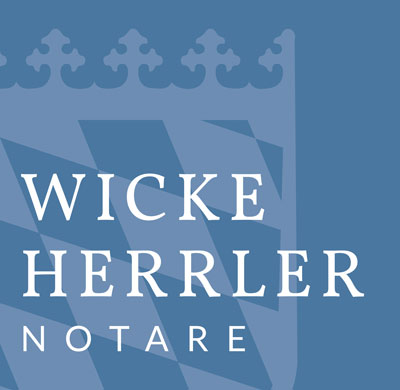Wills and inheritance contracts
The organisation of company succession is, in many respects, very difficult, but personally and commercially also a very important and therefore worthwhile endeavour. It requires clear-sighted planning and a legally precise formulation of the bequeather’s will. Recording the last wishes in a notarial will or inheritance contract creates a guarantee that the division of the estate among the heirs is actually carried out according to the will of the bequeather and disputes between the heirs are avoided.
A notary is not only aware of the tax-related aspects of wills and inheritance contracts, but also issues of civil and family law, such as care for dependants or avoidance of disputes between the heirs. Managing one’s inheritance is not a question of age. Young people or families should also make provisions for accidents in order to avoid surprising and serious consequences. Besides consulting during preparation of a will, a notary also helps govern issues pertaining to the bequest. This may apply to claims on the apportionment of certificates of inheritance and certificates of executorship or the procedure of inheritance conflicts.
Company successions
Clear-sighted succession planning is particularly important in the transfer of companies to the next generation. Thereby, the survival of the company is exposed to a multitude of risks. If the company is inherited by a community of heirs consisting of spouse and children, disagreements between heirs about the continuation of operations can block commercial capacity to act. Individual heirs’ assertions of claims to distribution and settlement can compromise the company’s liquidity. The same applies to claims to legal portions by descendants that have been passed over or disinherited.
The ideal method of planning company succession is a life-time transfer to the next generation. A strategic company succession requires a complete overall concept that takes into account the company’s interests appropriately, does not ignore questions of inheritance and income tax, secures the retirement pension of the owner and spouse, and includes claims to compensation for increase in value as well as legal portion claims as possible disruptive factors in case of a divorce. In order to secure his or her life’s work, a businessperson should therefore think about company succession as early as possible, reappraise it regularly and, if necessary, adjust it.
Foundations
In times when savings measures are necessary for public budgets, private initiatives in the form of foundations perform important public functions in promoting the common good and simultaneously providing a stimulus for new social developments. Foundations have also grown considerably more important in recent years as an instrument of succession planning. Testamentary foundations are created by bequeathers who have no close heirs, who want their name to live on or who simply want to do a good deed. As a legal form of organisation without members, freed from human mortality and impatience, a foundation alone allows for perpetuity.
Besides non-profit and charitable foundations, family foundations, which prevent fragmentation of the assets and thereby serve the long-term welfare of the founder’s family, are common, as well as business foundations (business owner and shareholder foundations) whose purpose is to secure the company succession according to the founder’s intention. A double foundation is when a family foundation and a non-profit foundation are partners in a limited liability company. According to this concept, the non-profit foundation has the larger share of capital, as a rule, in order to receive the tax breaks unavailable to the family foundation. On the other hand, the family foundation receives the majority of the votes, in order to ensure that the family’s influence in the company continues. We will gladly advise you on the organisation of the foundation either in your lifetime or as part of a last will and will see to its official recognition.


